There isn’t another photography destination in the world that boasts dark & starry night skies along with ancient coastal forests and beaches, high desert regions, old growth temperate rain forests, and snow capped 14,000 foot mountain peaks all within a few hours drive from one another.
Join me on a 5 night / 6 day photography adventure exploring some of the best night sky & landscape photography destinations that the Pacific Northwest has to offer, featuring the following locations.
Click On Each Destination to See More Photos – Complete Details Below
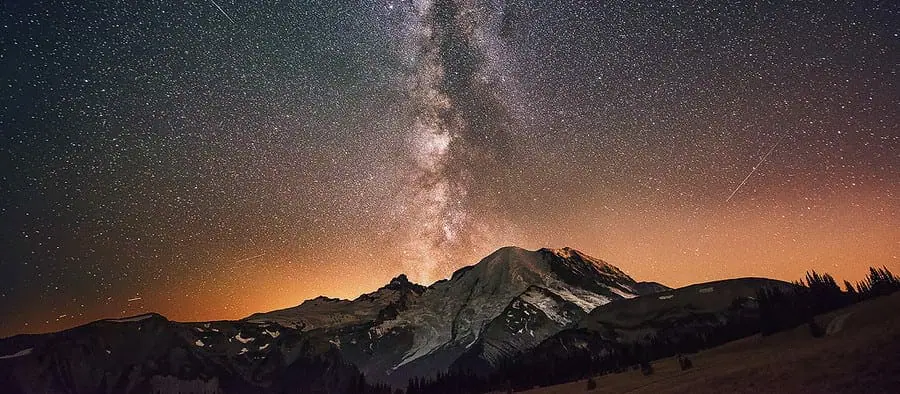 |
| Glaciated Mountains & Alpine Lakes || Mount Rainier National Park – Washington |
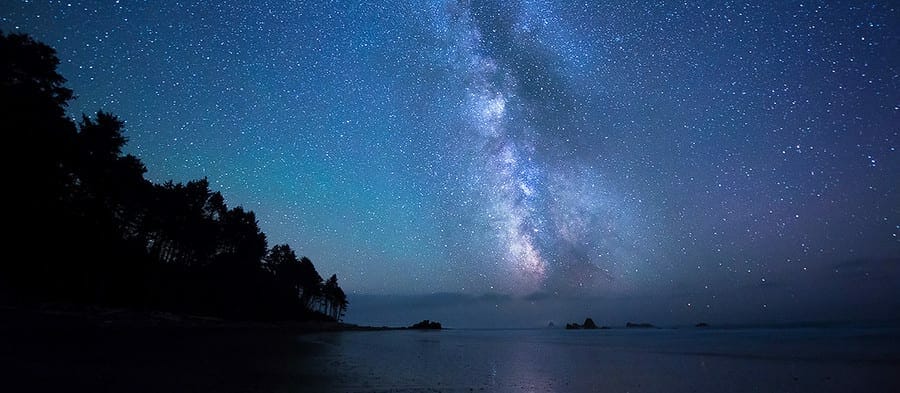 |
| Ancient Rain Forests & Beaches || Olympic National Park – Washington |
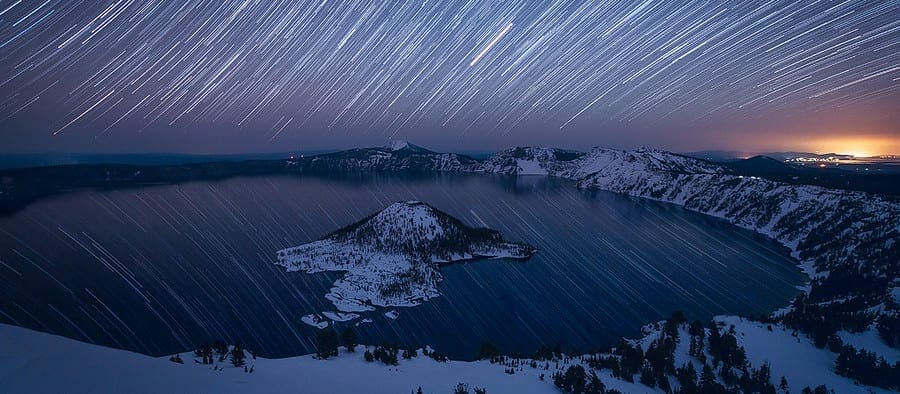 |
| High Deserts & Volcanic Lakes || Crater Lake National Park – Oregon |
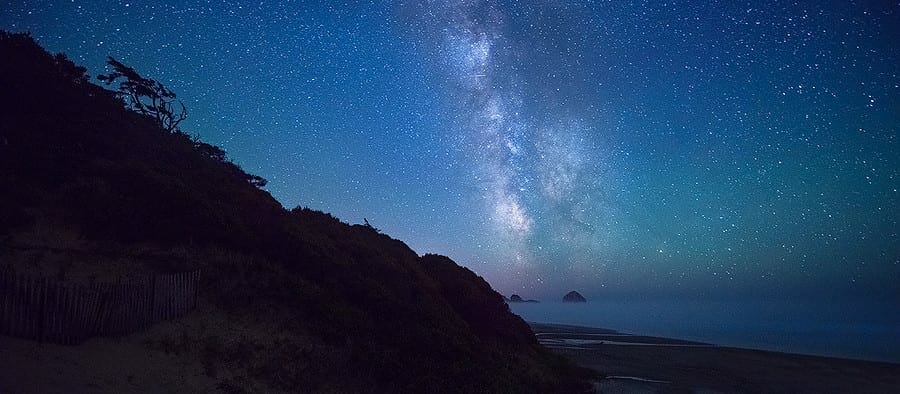 |
| Sea Stacks, Beaches & Coastal Caves || The Pacific Coast – Oregon |
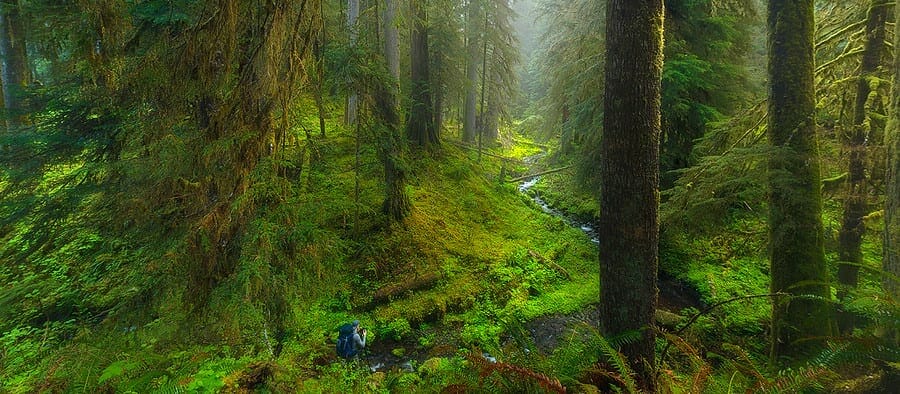 |
| The Rain Forest || Olympic National Park – Washington |
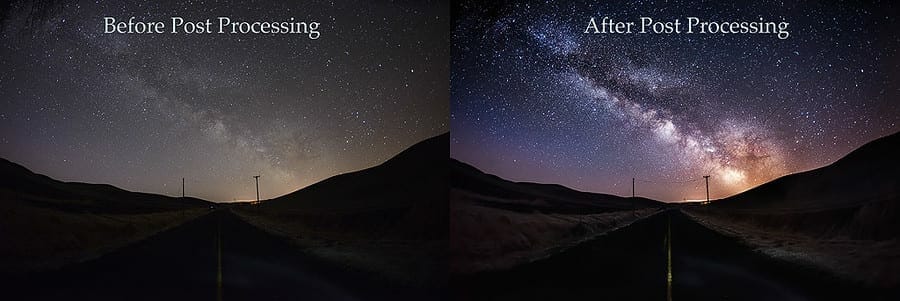 |
| 2 Post Processing / Editing Class Room Sessions |
Overview
We will spend 5 nights photographing the Milky Way, night sky, Moon and stars along with 2 afternoons in the classroom learning how to post process and edit these photos from start to finish. An afternoon / sunset shoot will also be included with each day of the workshop prior to going out and shooting the night sky.
Throughout workshop I will be providing expert instruction teaching you all aspects of night sky photography including planning, shooting and editing / post processing. You will also learn my complete landscape photography workflow.
As a resident of the Pacific Northwest I’ve spent years exploring each of these locations and have photographed them dozens of times. After countless shoots, and hours upon hours of research I can guarantee you that we will visit the best locations, at just the right times.
For other workshop & tour options visit the Workshops & Tours Page.
Scroll Down for Registration & Complete Details.
You’ll Receive 150$ of Bonus Learning Material Upon Signup
Upon registering, you will receive these products instantly via email.
Lightroom for Star, Milky Way & Night Sky Photography – 3 Part Video Series, Photograph the Night Sky eBook, Star Photography Photoshop Actions + Bonus Video Tutorials, & Under the Stars Lightroom Presets.
Dates, Cost & Signup
Use the links below to signup for the workshop dates of your choice. Included below this section are logistics and information for the workshop.
Workshop Cost: 2495$ Total / 500$ deposit to reserve your space.
Small Group Size: 6-8 Students Maximum.
For other workshop & tour options visit the Workshops & Tours Page.
Saturday, July 7th – Thursday, July 12th, 2018 (Sold Out: Click for Waiting List)
Saturday, August 4th – Thursday, August 9th, 2018 (Sold Out: Click for Waiting List)
Refund & Cancelation Policy: Click Here & View
- Upon Sign Up You Will Receive a Detailed PDF Including All Logistics & Everything You’ll Need to Prepare.
- Once the workshop sells out the registration button will no longer work. All signups are first come first serve.
Scroll Down for Complete Details & Logistics
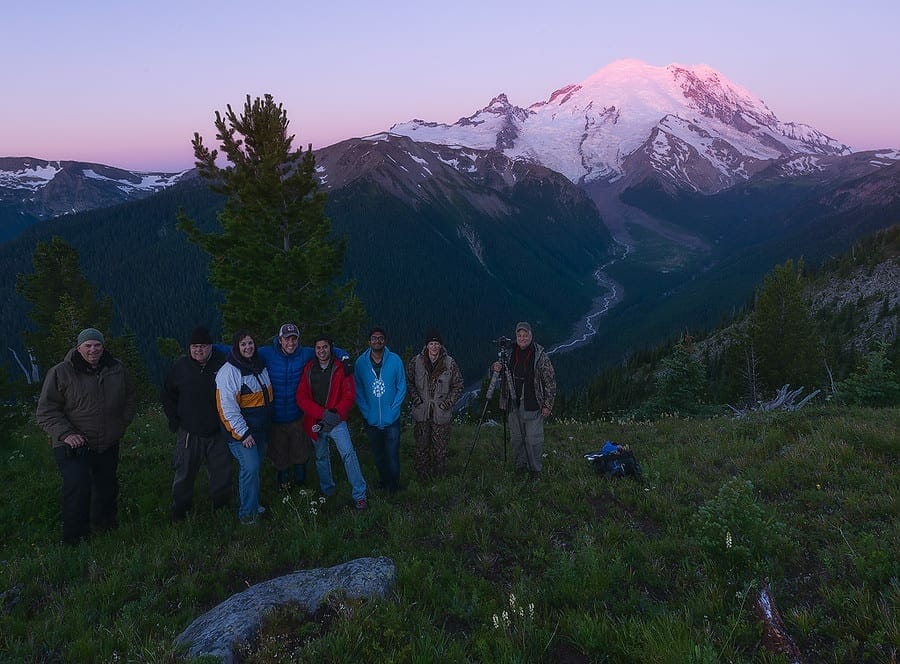 |
| Finishing up another great star photography workshop with a sunrise shoot @ Mount Rainier National Park |
What Will I Learn?
You will receive in-depth, simple to understand, professional instruction in all aspects of night, star, and landscape photography including, planning, shooting, and post processing / editing.
Visit my Star Photography Photo Gallery for an example of the pictures I’ll teach you to take.
Learn to Photograph the Night Sky
With 5 nights of in depth instruction you will leave the workshop with great photos and an in depth knowledge of landscape, night sky, star, and Milky Way photography. Here are some of the skill sets we will learn during the workshop:
- Unique & easy to understand techniques for selecting the perfect Focus, Aperture, ISO and Exposure Time for any shooting situation.
- Focusing at night. You will learn 5 of my favorite methods for obtaining sharp focus at night. These are guaranteed to work.
- The 500 Rule: Selecting the optimal exposure time for different star photography scenarios.
- Troubleshooting 101: How to set up for the perfect night shot in any conditions. This includes focusing at night, multiple exposure images, etc.
- How to capture great shots of the Milky Way and the other worlds that surround us.
- How to capture great photos at dusk and dawn.
- How to photograph star trails while decreasing noise or light pollution in your shots.
- The ability to capture a sharp foreground as well as the Milky Way or stars in the background.
- Using multiple exposures, settings, and advanced tools to improve the quality of your star photography.
- Depth of Field Blending to achieve ultimate sharpness throughout the entire picture. Techniques provided for night/star and landscape (sunrise / sunset ) photography. We will cover how to effectively capture the full depth of field using multiple exposures and then combine them during our classroom post processing sessions.
- Effectively capturing all necessary RAW picture data in the field, to minimize post processing at home and come away with over all better photos. This part of the workshop ensures that you did not blow out highlights, lose dark areas, or degrade any of the color or other picture data while out shooting. It’s nice to leave each shoot knowing you got the shots you wanted, without any doubts. We will cover all these bases for landscape ( sunset / sunrise ) and night/star photography.
- Open floor session. Each one of you provide something you would like to learn and we will all go through the process step by step.
- The sunset shooting sessions will also include my landscape photography workflow providing all the tricks and techniques I use to capture all of my non-night related photos.
- What ever else you may want to learn, these workshops are anything goes… so ask away:)
More Details Below the Next Photo
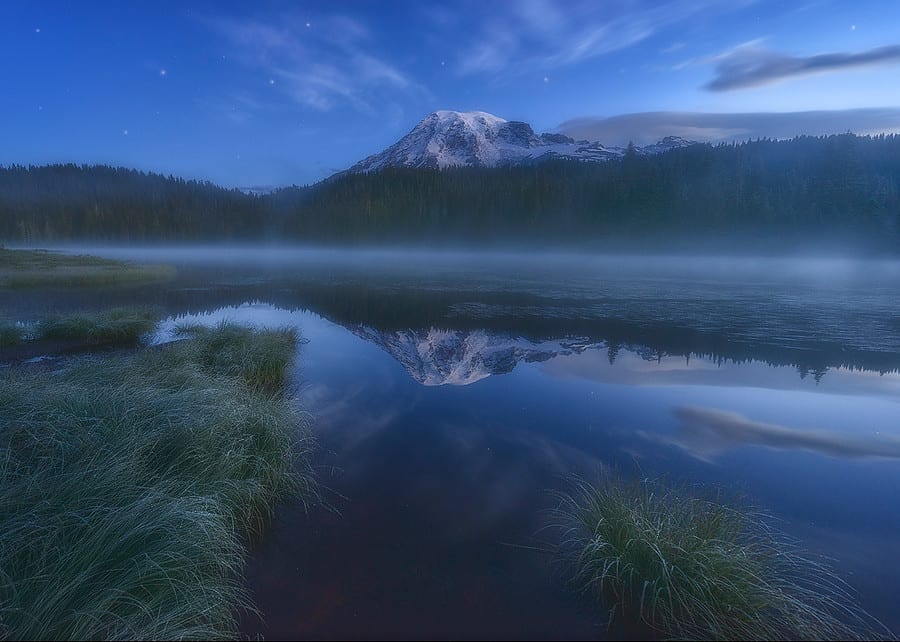
Learn to Post Process / Edit Your Night Sky Photos
Each post processing session will be held in a class room style setting where each student has an area to set up their computer and work on their photos.
I will be displaying my screen on a large projector / computer screen which will allow us to work through my entire post processing workflow from start to finish. Students will be able to follow along on their own computers and ask questions any time they like.
Each editing session we will go through new skill sets. There is also additional time for one on one instruction allowing each student to work on some of their own photos taken on this tour.
[twentytwenty]
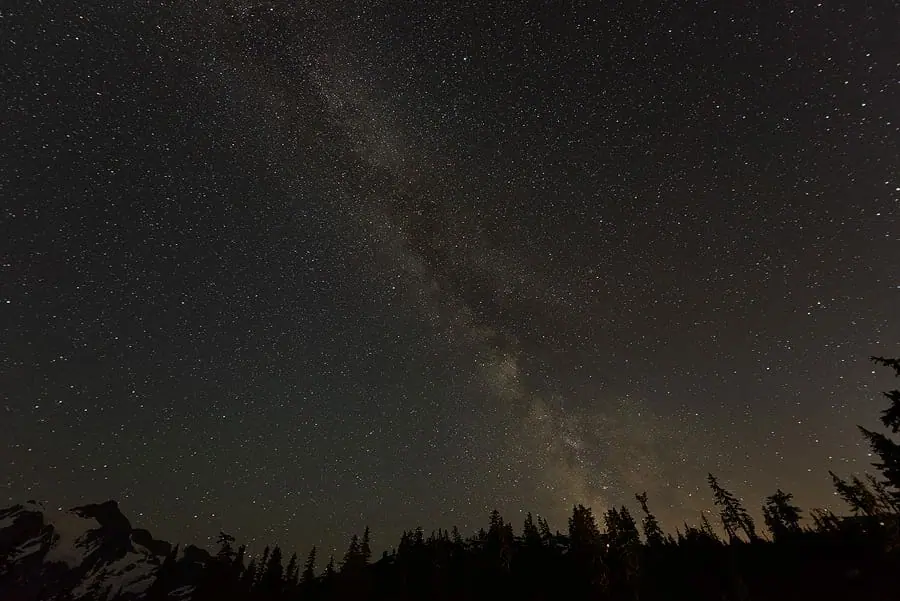 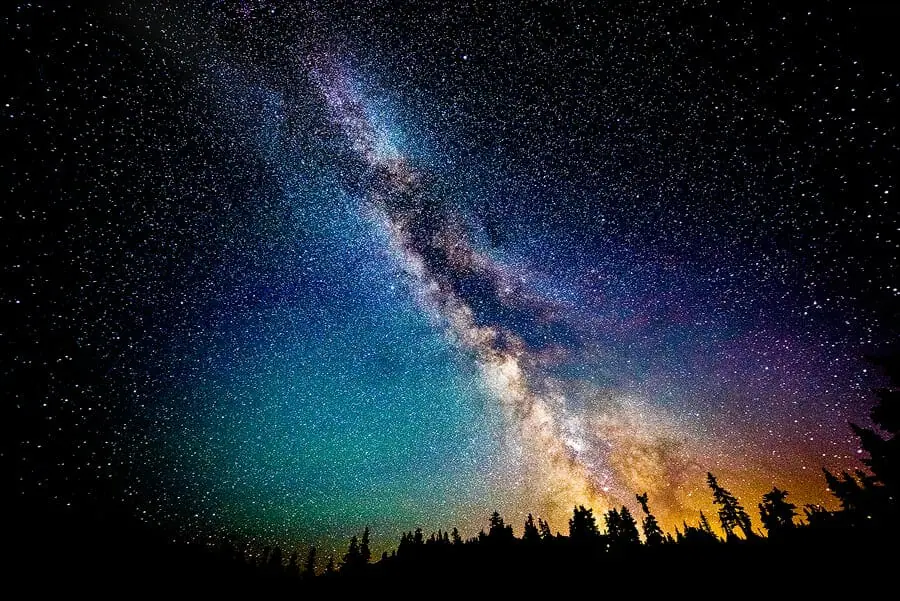 [/twentytwenty] |
| A Before / After Photo showing some of the post processing / editing skills that you will learn at the workshop. |
Some of the Skill Sets Taught in the Post Processing Sessions:
- Complete explanation / theory of luminosity masking techniques and how they apply to night sky and landscape photography. I’ve designed my own post processing workflow using these techniques and will be teaching it to each student.
- RAW image processing using Adobe Lightroom and / or Adobe Camera RAW. I personally use Lightroom but am well versed in teaching both programs.
- In-depth explanation of Photoshop layer masking and how to apply it to your photos.
- Color correction for night sky photography.
- Color theory and color selection. How to selectively choose colors for your night sky photos that portray mood and feeling.
- Advanced noise reduction techniques for night sky photography
- Applying selective noise reduction using luminosity masks.
- Exposure and depth of field stacking / blending. We will be working on these techniques in the field, and then post processing the shots in Photoshop.
- Contrasting the Milky Way and making it pop!
- Explanation and use of the Photoshop Channels Module.
- Explanation and use of the Photoshop Layers Module
- Using Photoshop curves and levels for night photography.
- Using Groups in Photoshop.
- Making detailed selections in Photoshop.
- Artistic cropping, warping, and free transform use in Photoshop.
- Web and Print Sharpening techniques.
- Plus much much more!
If you’re interested in seeing the types of photos you will learn to edit, then check out my
Star Photography Photo Gallery
[twentytwenty]
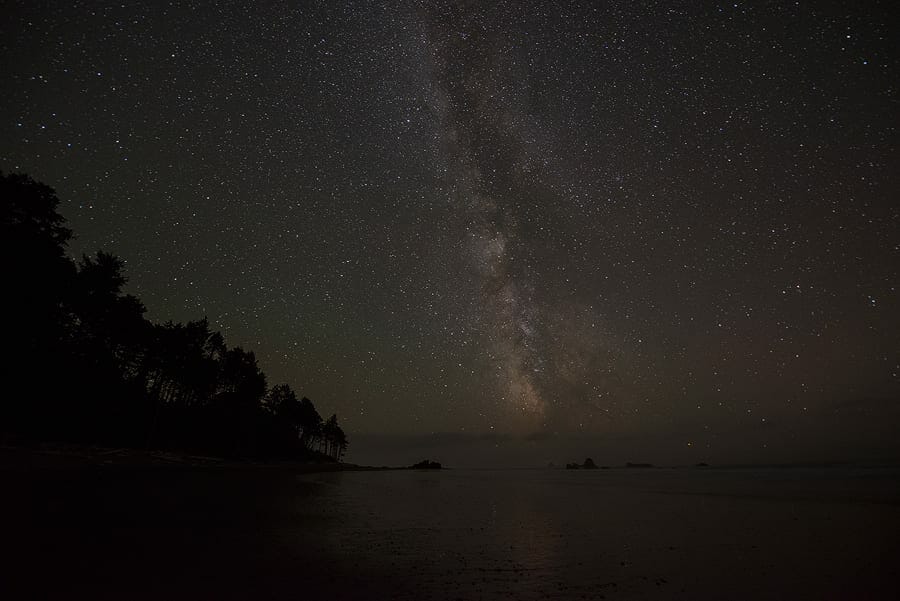 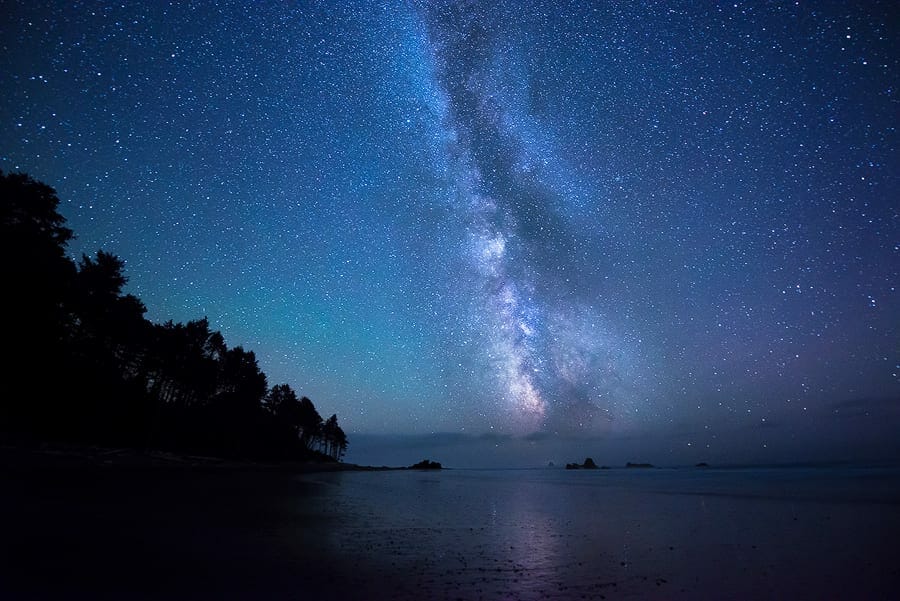 [/twentytwenty] |
| You’ll Learn Simple & Powerful Post Processing Techniques. |
Click Here & Sign Up (or Scroll Down for More Details)
Learn to Plan & Scout for Your Photo Trips
From weather prediction, and great shooting locations to planetary motion; this workshop will cover all the bases, allowing you to fully plan your next shoot in an effective, efficient manner.
I do an extensive amount of planning before & during every photography trip. This is key to setting yourself up for nice photos.
Extensive planning went into this photo workshop / tour to ensure the best results at the best times. You will learn these tips and tricks allowing you to extensively plan for your own large trips or one night shoots.
Here are some of the topics we will cover during this part of the workshop:
- In-depth scouting & planning for star, Milky Way & Night Sky Photography. For a brief overview, reference my Scouting & Planning for Night Sky Photography Video Tutorial Series. These videos just scratch the surface.
- Weather – How to best predict ( making educated guesses ) the weather for a given location, and how to scout for clear dark skies.
- Effectively reading cloud cover charts to predict clear skies.
- Analyzing high and low pressure systems to predict nice sunrises/sunsets, or clear skies.
- Preparing for photography trips / finding dark skies prior to visiting locations.
- Planetary Motion & Planning – How to prepare for a night under the stars. Knowing where the Milky Way will rise, the Moon will set, and where certain stars or celestial bodies are located in the night sky. This is key for planning a shoot around a certain event.
- Reading topographic maps to plan your shoots.
- Maps – Digitally prepare a map containing all of the information you need for one of your big photo trips.
- Precise Planning for Celestial Events – Want to know exactly where and when the Milky Way will rise, or the Moon will set? Want to see Venus set over the ocean from a certain location and be there to photograph it? Using my tips and tricks you can plan for any of these events, or others that you may want to photograph.
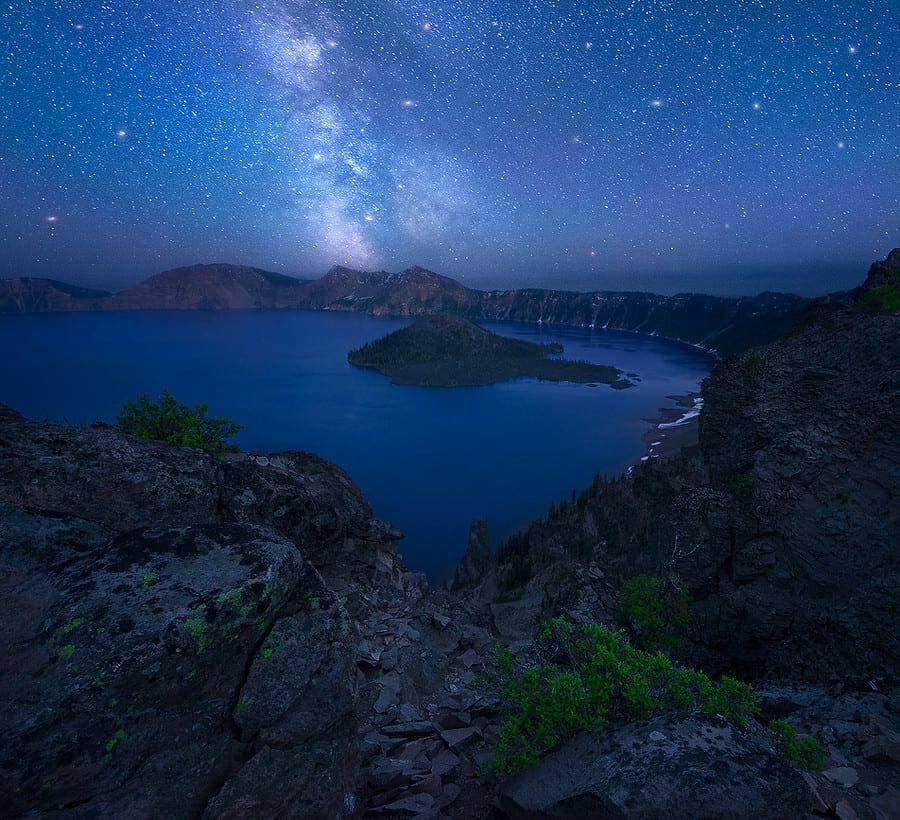 |
| The Milky Way & Crater Lake |
Registration and Payment Details
Thanks for your interest in this workshop. I encourage you to read through the entire workshop page learning about all aspects prior to signing up. There is some additional information below the payment options.
Each workshop is limited to 6-8 students to ensure you get the maximum amount of personalized instruction.When the workshop is sold out, you will no longer be able to select the payment options below.
If you have any questions, don’t hesitate to email me at Workshops @ DaveMorrowPhotography.com. Upon initial email contact I would be happy to talk with you over the phone as well.
Upon making your down payment to register, you can make your final payment anytime 60 days or more prior to the workshop start date. Detailed final payment instructions provided upon signup.
Click Here & Sign Up (or Scroll Down for More Details)
Refund & Cancelation Policy
CLICK HERE for Dave’s Workshop & Tour Refund Policy.
Additional Information
All workshops are registered and held in compliance with the US Department of Interior / US National Park Service. Dave Morrow is certified in CPR and AED Training and holds general liability insurance.
What Should I Bring with Me?
Upon Sign up, you will receive a detailed PDF including everything you’ll need to bring with you. I’ve also provided this below for reference.
Camera Equipment
Provided below is the gear that I recommend you to bring. If you need some star photography camera lens and gear recommendations I have provided you with some great options that I have tested. Click Here for Recommended Night Photography Cameras & Lenses. You can also reference the What’s in My Camera Bag Section of this website for more recommendations and tips:)
- A DSLR Camera. Keep in mind star photography is one of the few fields where a better camera really does help to produce better results. A full frame / 35mm sensor will really help you to capture the best of the stars, but is not required. Renting a camera and lenses is always a great option. There are many websites that provide this service such as BorrowLenses. Glazer’s Camera in Seattle has one of the best and more affordable rental programs around.
- A wide angle lens is very important. Any lens between 8mm-24mm will work depending on your camera. You will also need an aperture of at least f/3.5 minimum speed, although f/2.8 is preferred. These can also be rented at the links provided above.
- It’s also preferred to have a zoom lens for photographing landscapes at sunset. A 70-200mm range is always great to have.
- A tripod. Any will work but the sturdier the better.
- A big memory card. Two 16-32 GB cards are preferable.
- A minimum of 4 batteries. Long exposures drain the battery quickly.
- An car inverter for charting batteries on the drive. Click Here for example.
- Camera Timer—Even a cheap knock off works, check reviews online before buying these brands to avoid a let down.
- Camera / Lens Rags—I carry a lot of these at all times. Shooting near the ocean and at night, it will be necessary to clean your lens off.
- Circular Polarizing Filter for sunsets and the rainforest (optional)
- Neutral Density Filters for sunsets (optional)
- Laptop Computer running Photoshop & Adobe Lightroom or Adobe Camera RAW. You can take the workshop without this, but you won’t be able to edit photos in our post processing sessions.
Clothes, Gear and Other Items
Please reference my Guide to Backpacking & Traveling with Photography and Camera Gear Tutorial for an even more in-depth understanding of the gear I carry & why. You will be provided with a detailed check list of everything you’ll need for the workshop upon signing up.
- Clothes for temperatures between 45 – 80 degrees Fahrenheit. Yes, this is a huge range of temperatures. We are visiting all climates from deserts to mountains! Using layers will prevent you from bringing so many clothes. For laying basics, reference the bottom of my Guide to Backpacking & Traveling with Photography and Camera Gear Tutorial.
- Shorts and Pants for the week. The weather is very nice, sunny and warm during the summer months, but the temperature is likely to drop at night.
- Long sleeve and short sleeve shirts for the week
- Flashlight and / or headlamp
- Hiking socks
- A wind breaker / light jacket—Waterproof is great if you have it
- Light boots for hiking
- Water shoes or sandals.
- Warm Hat
- Sunscreen
- Bug spray
- Food and water for 24 hours – Often we are in locations that aren’t within an hour of a store. It’s good to carry extra food and water at all times.
- Sunglasses
Click Here & Sign Up (or Scroll Down for More Details)
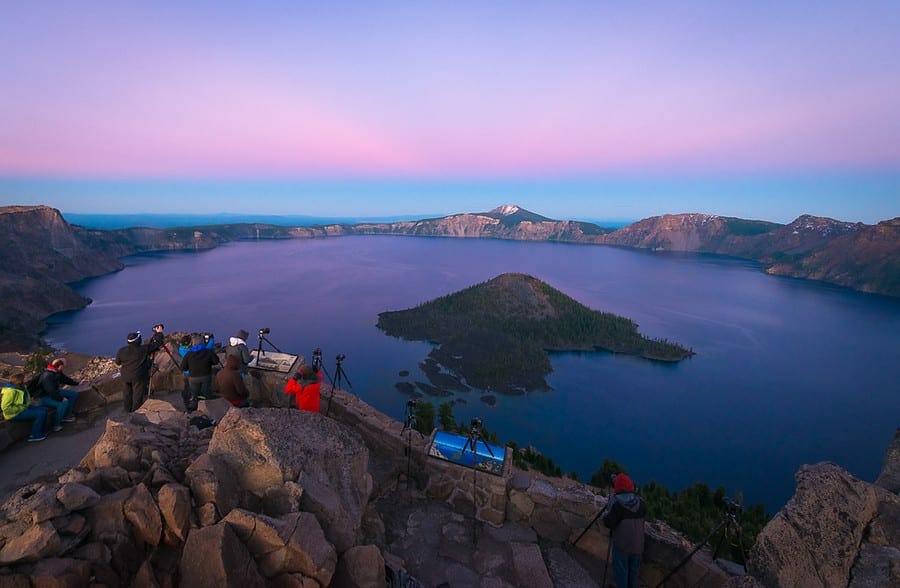 |
| Shooting Sunset High Above Crater Lake,Oregon |
Physical Requirements
This workshop will require you to hike up to 3 miles each day over fairly flat terrain. Some days we will not be hiking long distances, while others we will. We arrive at all locations with plenty of time, so there will be no need to rush. I have had nearly all fitness levels attend my workshops and they have done just fine:)
Tentative Schedule
You will receive an in-depth PDF including hotel recommendations and map locations, automatically, upon signup. This will allow you to better plan your trip. The PDF also includes everything else you’ll need to be prepared. Don’t worry, I got you covered!
A 6 day and 5 night workshop gives us the ability to travel to the best locations, finding clear skies and the great weather along the way. Although the summer months are usually very dry with warm weather I’ll still be constantly checking the weather and cloud patterns to ensure we get great photos at all locations that we visit.
Due to this fact there is not a 100% guaranteed schedule for which locations we will visit on what nights since our number one goal is clear skies and fantastic photography. We will visit all of the locations noted on this page, unless the weather is so bad at one location that it would not prove in our best interest. I do have back up locations all over the states of Oregon and Washington just in case!
We will be meeting in Olympia Washington on the morning of your workshop start date at approximately 10AM for early lunch and a workshop overview. This will allow you to plan for when you need to arrive in the area. I’ll provide you with the exact location & time via email when you sign up.
The workshop will end in Southern Oregon near Crater Lake National Park at approximately 3-5PM on the last date denoted on the workshop option you choose.
Upon signing up you will receive an email and PDF with full logistics and details on everything you need to know.
If you have any other questions please feel free to email me at Workshops @ DaveMorrowPhotography.com, and we can discuss via phone or email.
Sleeping / Lodging Arrangements
Hotel ( lodging ) and camping fees are not included in the cost of your tour, but you will receive step by step instructions allowing you to easily make reservations for the hotels or camp grounds of your choice. I have also stayed at all of the recommended hotels and campgrounds prior to recommending them.
Upon signing up for the workshop you will receive an email from me providing you with the best locations to find lodging throughout the workshop.
You also have the option to camp, this is what I do. You will be provided with full details on this option, along with my favorite camp sites. Some are free, some cost $10-15 a night.
Click Here & Sign Up (or Scroll Down for More Details)
Transportation
During the Workshop
You are responsible for your own transportation to/from and during the workshop. I will provide detailed instructions on driving directions, along with other necessary info through email to everyone that signs up. During the summer when these workshops are held you will be able to travel to all locations with a standard 2 wheel drive car / vehicle.
Air Transportation
In the case that you are flying in to attend the workshop, we will be starting and ending the workshop in the Seattle / Portland Area. Both Seattle ( SEA ) and Portland ( PDX ) airports will provide a central location for you to fly into. Both provide about the same drive times, so which ever of the two options works for you is just fine.
Rental Car Information
For those of you that need to rent a car for the workshop. I would suggest renting a small to midsized sedan that holds all of your gear and does fairly well on fuel economy. In the case that you want to rent something else, this is fine as well. We will be doing some driving during our adventures, so comfort, room and fuel economy are important. I’ve also noticed through out my travel experiences that you can save a significant amount of money by renting a car at a location a few miles from the airport. I usually take a cab and pick up my car at a non-airport location if it is available and saves a reasonable amount of money.
Can I Bring a Friend?
Of course, if your friend brings a camera ( not including point & shoot / phone ) they must pay for the workshop. If they do not have a camera or plan to learn in the post processing session then it is free of charge.
Click Here & Sign Up (or Scroll Down for More Details)
Questions?
We are always happy to help:)
Contact: Workshops @ DaveMorrowPhotography.com